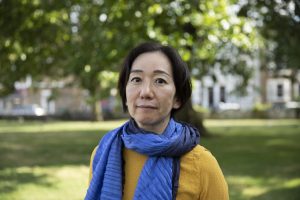 During August 2022 Professor Amy Smith served as R.D. Milns Visiting Professor at University of Queensland, in Brisbane, Australia. Since Australia’s seasons are the opposite of ours, August is a great time of year to find hives of academic energy in antipodean Universities. Queensland’s early Spring feels like a comfortable Reading Summer: Amy’s hosts did a good job of getting her to meet the local flora & fauna and enjoy the watersports!
During August 2022 Professor Amy Smith served as R.D. Milns Visiting Professor at University of Queensland, in Brisbane, Australia. Since Australia’s seasons are the opposite of ours, August is a great time of year to find hives of academic energy in antipodean Universities. Queensland’s early Spring feels like a comfortable Reading Summer: Amy’s hosts did a good job of getting her to meet the local flora & fauna and enjoy the watersports!
Classics at Queensland is part of a larger School of Historical and Philosophical Inquiry, just as we at Reading join with historians and philosophers in a School of Humanities. At Queensland, however, these postgraduates have an open plan work area that includes a kitchen and is surrounded by their teachers’ offices, one of which Amy was allocated during her short stay. And just as we have our Ure Museum, UQ Classics benefits from its own museum, named in honour of Prof. R.D. (Bob) Milns. On her first few days, therefore, Prof. Smith explored the Museum’s immense collection of fragments and spoke to the students—UQ’s Classical Society—about ‘Disiecta Membra or How to find value in fragmentary pots’.
 Many of these pots were—unsuprisingly—late black figure Attic (Athenian) fragments, which fed into Prof. Smith’s presentation to UQ’s ancient history research seminar, on ‘The search for ancient Greek women at the feast’. The R.D. Milns Museum and perpetual endowment fund, which funded Amy’s visit, were created in large part with support from the Friends of Antiquity, a group of alumni, scholars and other teachers, who meet at UQ on a monthly basis to hear from local and international speakers. A highlight of Amy’s visit therefore was her public talk to the Friends of Antiquity, on ‘Festival ware for Athenian women’. This and her ancient history seminar talk relate to research she’s preparing with Katerina Volioti (Roehampton) for a book to be published by University of Wisconsin. At her last public lecture, for something completely different, however, Prof. Smith spoke on ‘Hercules: dancing queen’, bringing together her research interests in Herakles, myth, & dance.
Many of these pots were—unsuprisingly—late black figure Attic (Athenian) fragments, which fed into Prof. Smith’s presentation to UQ’s ancient history research seminar, on ‘The search for ancient Greek women at the feast’. The R.D. Milns Museum and perpetual endowment fund, which funded Amy’s visit, were created in large part with support from the Friends of Antiquity, a group of alumni, scholars and other teachers, who meet at UQ on a monthly basis to hear from local and international speakers. A highlight of Amy’s visit therefore was her public talk to the Friends of Antiquity, on ‘Festival ware for Athenian women’. This and her ancient history seminar talk relate to research she’s preparing with Katerina Volioti (Roehampton) for a book to be published by University of Wisconsin. At her last public lecture, for something completely different, however, Prof. Smith spoke on ‘Hercules: dancing queen’, bringing together her research interests in Herakles, myth, & dance.
On her way to Queensland, Amy took time out of her NZ holiday to catch up with colleagues & collections in Auckland and Christchurch. The University of Canterbury in Christchurch has restored its James Logie Memorial Collection of antiquities, much of which was broken in their 2011 earthquake and redisplayed in the Teece Museum of Classical Antiquities in UC’s Arts Centre, just around the corner of the Canterbury Museum and on the same block that the (jn)famous Wizard of New Zealand could be found during her visit.
After her travels to Western Australia, Amy found herself on the doorstep of University of Western Australia (UWA) in Perth where, as in Reading, Classics and Ancient History is ensconced in the School of Humanities. She was kindly welcomed to their Friday seminar, with excellent presentations of current work from two of their postgraduate students, while Emeritus Professor John Melville-Jones, a numismatist, regaled her with stories about ‘referential’ style of the University’s Hackett Buildings, graced even with busts of Sokrates and Diotima. And the next week Reading and UWA postgraduates come together in a conference and exhibition on Monsters: From ancient to modern. Stay tuned for the upcoming release of the Monsters video tour and the online exhibition!















 What do you get if you cross cutting edge research in the ancient world with creative talent?
What do you get if you cross cutting edge research in the ancient world with creative talent? The Research Centre for Greek and Latin Literature of the Academy of Athens is delighted to invite you to the 6th online lecture of its 2020-2021 Seminar ([Self-]Praise & [Self]-Blame in Ancient Literature).
The Research Centre for Greek and Latin Literature of the Academy of Athens is delighted to invite you to the 6th online lecture of its 2020-2021 Seminar ([Self-]Praise & [Self]-Blame in Ancient Literature).
